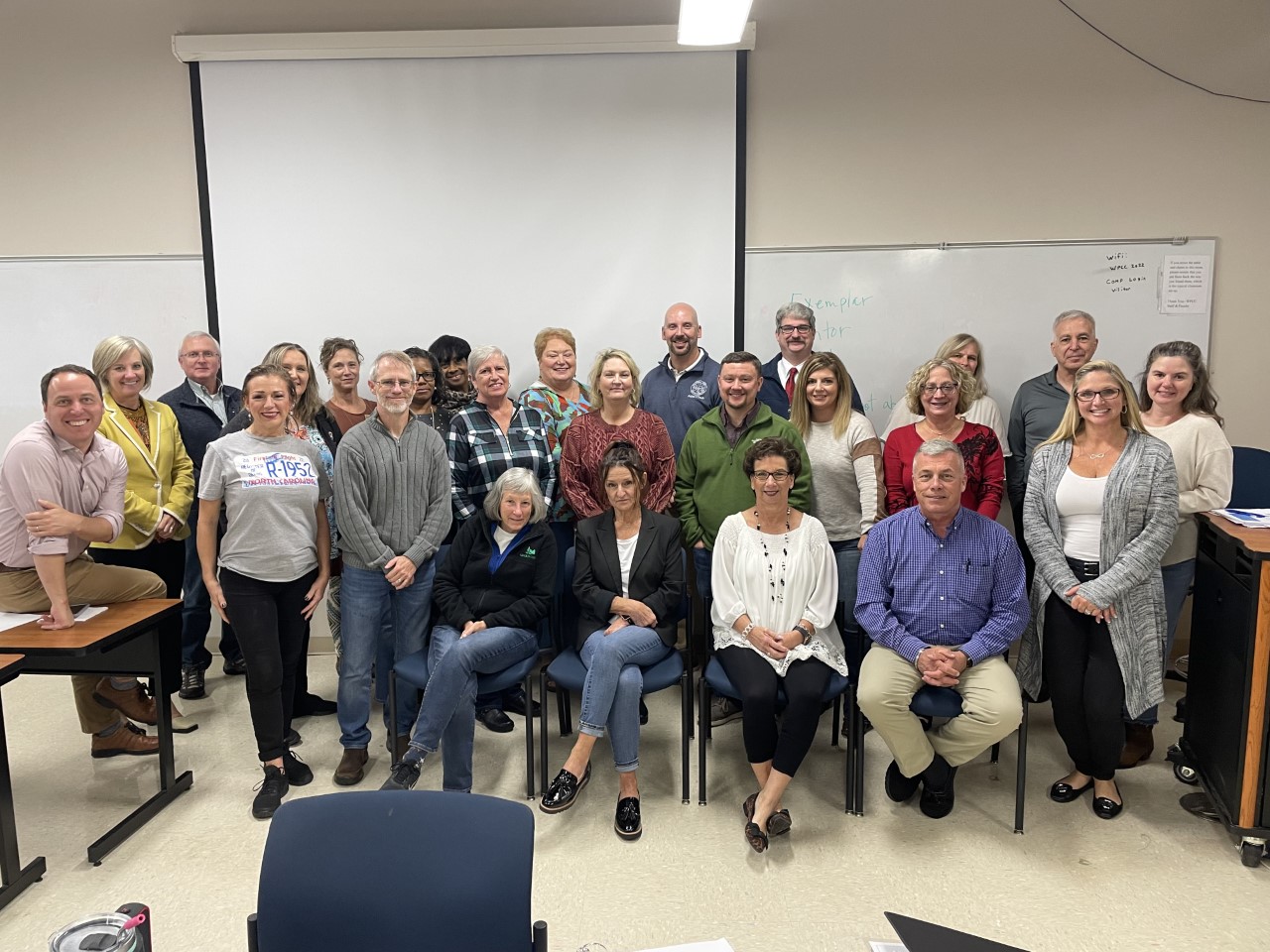On the frontlines: Registers of deeds fulfill essential role in NC counties
When the Institute of Government opened its doors at UNC-Chapel Hill in 1931, one of the first groups of clients it gathered was North Carolina’s registers of deeds. This was no coincidence: while the work of registers and their offices often flies under the radar to the average North Carolinian, local government experts understand the critical importance of these underappreciated civil servants.
Registers of deeds work at a unique juncture that touches government service, commercial transactions, and even important life moments. Their records encompass real estate, birth and death records, marriage licenses, assumed business name certificates, locally recorded veterans’ discharge papers, and much more. Their work is essential and frequently complex, involving sophisticated financial transactions and the maintenance of records that are integral to community and individual matters.
“There are a lot of misconceptions around our work,” said Wayne Rash, register of deeds for Caldwell County and legislative co-chair of the North Carolina Association of Registers of Deeds (NCARD). “Everyone—from the general public, to people who run for office, to county leadership—assumes our work is only clerical in nature: we take a document, scan it, put names into a database, and we’re done. In reality, our work is very technical and there is a lot of knowledge, expertise, and familiarity with law and procedure required.”
Registers’ offices work on the frontlines of county government, regularly interacting not only with community members but also other government employees and officials. Those relationships and services in turn play a key role in supporting efficiency in both the public and private sectors.
“Our services and records are important not only to the citizens we serve but also to our overall economy,” said Brandi Brinson, who serves as register of deeds for Franklin County and is the education committee co-chair and immediate past president of NCARD. “Many of our county departments could not do what they do without the registers of deeds office performing its duties.”
The complexity of these roles, responsibilities, and relationships means that registers’ offices are constantly adapting to new challenging and evolving laws. For more than 90 years, registers and their staffs—today numbering around 800 officials statewide—have depended on the School for support in this work. Faculty member and Albert Coates Distinguished Professor of Public Law and Government Charles Szypszak has worked directly with these offices since 2005, using his extensive background in real estate, commercial law, and dispute resolution as a foundation.
“Our registers handle very weighty matters and are devoted to getting it right,” he said. “I am constantly impressed with how open they are to listening to my advice and how appreciative they are to receive it. During my seventeen years working with them, I have gotten to know some of the truly nicest people I have ever met.”
One such example of Szypszak’s work is North Carolina Guidebook for Registers of Deeds, first published in 1933 as one of the Institute of Government’s earliest publications. Szypszak has written the last three editions of the Guidebook, which Rash characterized as “the bible” for many registers’ offices in North Carolina. He also provides advising for NCARD, maintaining a relationship the School first established when it helped form the association in 1952.
In addition to educational opportunities created by the School, Szypszak also collaborates with NCARD to provide leadership trainings and seminars for registers. He carried out one such intensive leadership training in Morganton on October 17-18, 2022. The seminar explored leadership approaches, principles, traits, and personal growth with a group of 25 registers and senior assistants selected through an application process.
“Registers face many challenges as leaders: selecting and supervising assistants and deputies, working within county government, and working with the public,” Szypszak said. “Our seminar explored experiences working across generations, evolving sources of motivation for employees, and how many tried-and-true leadership approaches remain relevant today.”
When the Institute first began gathering registers as a group in 1931, a key purpose of these gatherings was to share knowledge and experience. Brinson says this peer learning and collaboration is just as important to registers today.
“It is good to hear how others understand an issue or deal with different situations in their offices, whether in a large metropolitan county or a small rural county,” Brinson said. “When we learn together, it can provide different perspectives and allow us to make decisions and changes that have positive impacts on our offices and communities.”
Rash agrees, adding that Szypszak’s approach to teaching helps facilitate deeper engagement with both the materials taught and with other registers.
“Chuck’s classes are never about sitting and listening to him lecture,” Rash said. “He gets us thinking about the ‘why’ and the ‘how’ of doing things and helps us consider whether there are better ways to do our work. Every time I gather with other registers, I learn something.”
These ongoing efforts represent the School’s continued commitment to supporting registers of deeds as they tackle a constantly evolving landscape of legal and regulatory complexities.
“In everything we do, the School of Government gives us guidance,” Rash said. “There is no primer when you come into office and a lot of it is learning as you go. We would be lost without Chuck and without the School. I don’t know how you could put a dollar figure on what they provide our association and profession.”
Published November 14, 2022



